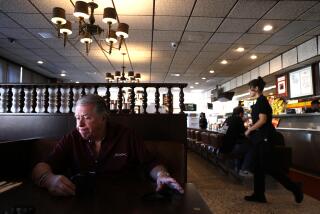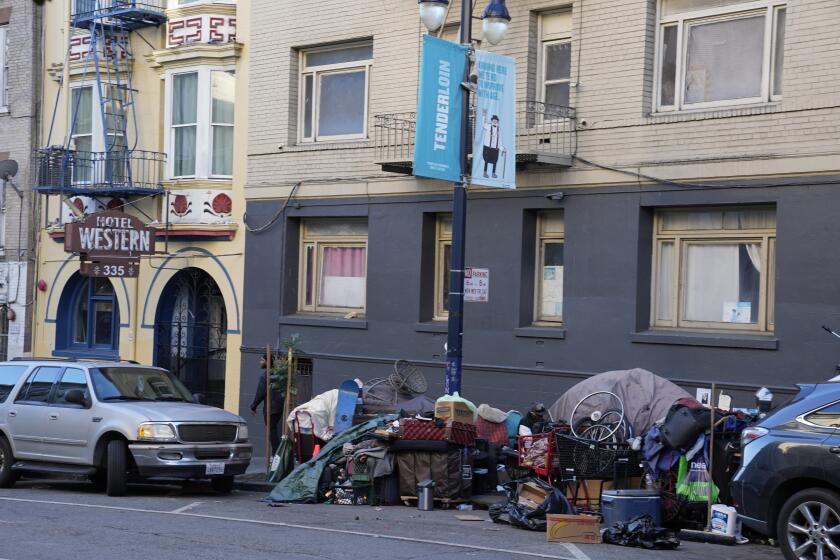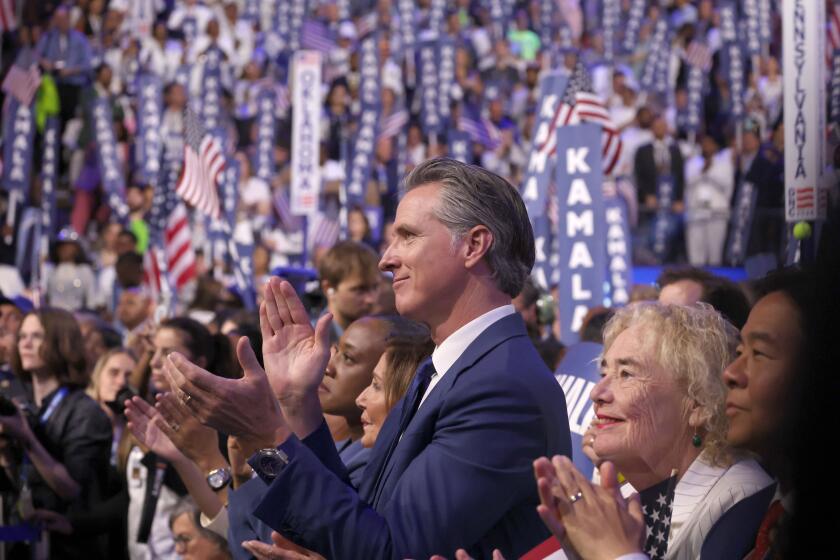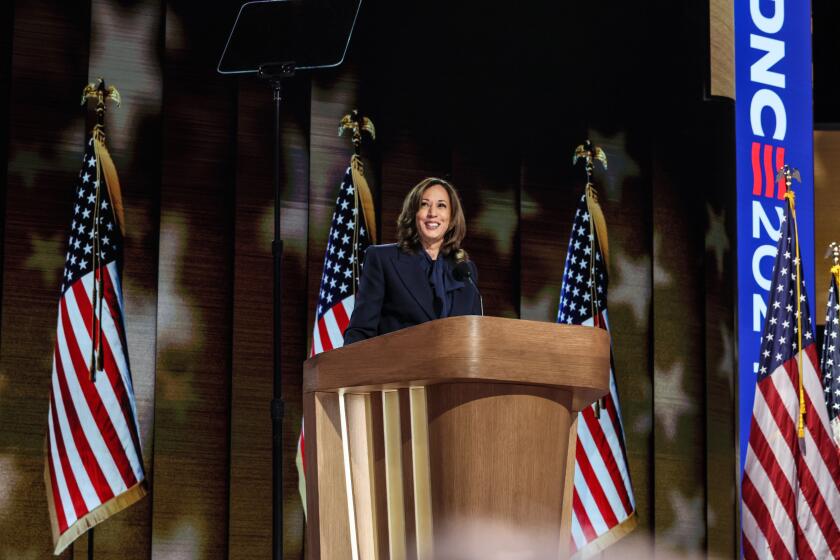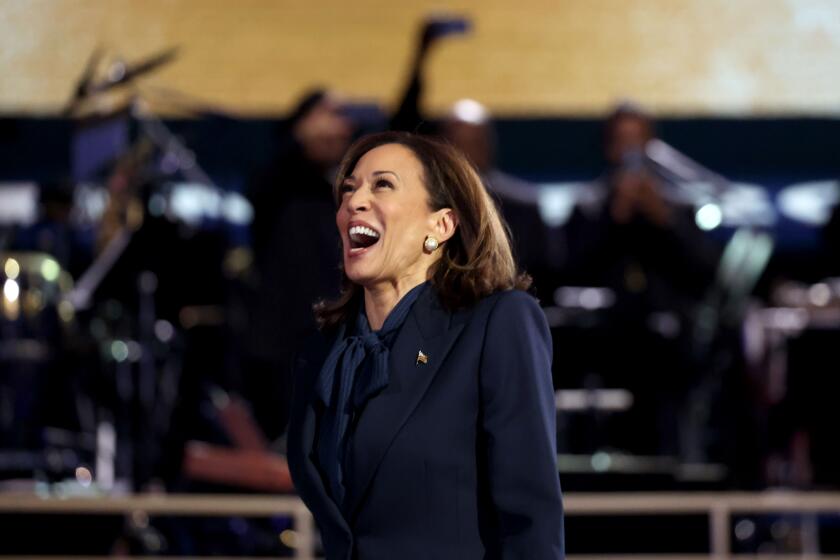High Court Strikes Down S.D. Ban on Write-in Votes
The California Supreme Court on Monday struck down the ordinance that bars write-in candidates from municipal runoff elections in San Diego.
The decision means that San Diego, the only major city in the state with such a ban, will have to allow write-in candidates in future elections. City Atty. John Witt said the decision also will require a comprehensive review--and possible overhaul--of other aspects of the city’s election laws.
The high court’s 6-1 decision, written by Chief Justice Rose Elizabeth Bird, said the provision forbidding write-in candidates “prevents voters from casting their ballots for the candidates of their choice . . . renders the election process too restrictive” and violates the state and federal constitutions.
The justices rejected the city’s argument that the write-in ban promoted voter education by requiring candidates to meet early filing deadlines (sometimes as long as eight months before runoff elections), and guaranteed that winning candidates would be supported by a majority of the city’s electorate.
Last year, the 4th District Court of Appeal had upheld the city’s right to prohibit write-ins in primary or runoff elections. That decision was overturned by the high court Monday. Several months after the appellate court ruling, however, the San Diego City Council voted to allow write-in candidates, but only in primary elections.
“This puts the integrity of our entire city election system into question,” Witt said of Monday’s decision, adding that the city “almost certainly would not” appeal the ruling to the U.S. Supreme Court. “I would expect that we will review the opinion and then make some suggestions to the City Council about where the city should go from here,” he said.
Under current laws, Witt said, the city cannot legally declare a winner in an election in which no candidate receives more than 50% of the vote.
“The certification of write-in candidates opens up general (runoff) city elections to more than two candidates for the first time,” Witt said. “I don’t know what we would do in the situation in which a leading candidate received only a plurality. I expect, under current charter provisions, that we would be forced to call for another election.”
Witt said the decision could also raise questions about the district method of electing council members in San Diego. Under current law, primary council elections are conducted by individual district, and the top two finishers advance to a citywide runoff.
“The court’s ruling puts into question the situation of the electors in the various districts having the ability to nominate the two candidates who go before the city as a whole,” Witt said. “This would mean that some guy who was no better than the third choice in his own district could be elected in the general, citywide election.”
The prohibition against write-ins was challenged when allegations of improper campaign contributions to Roger Hedgecock’s 1983 mayoral campaign surfaced after filing for the 1984 mayoral race had closed. Hedgecock, who was elected mayor in 1983 to complete Pete Wilson’s third term after Wilson’s election to the U.S. Senate, had been considered politically untouchable in the 1984 race until a civil suit challenging the legality of the earlier contributions was filed by Dist. Atty. Edwin Miller. But prospective challengers to Hedgecock were forbidden by the write-in restriction from entering the campaign after the charges were made public.
A suit challenging the constitutionality of the statute was brought by William Brotherton, a political unknown seeking to oppose Hedgecock as a write-in candidate, and was later joined by the San Diego chapter of the American Civil Liberties Union. The city refused to accept write-in votes for Brotherton.
Justice Malcolm Lucas, the lone dissenter on the Supreme Court decision, said the write-in ban did not affect the fairness of San Diego’s elections and should be upheld. He rejected the contention that the write-in ban was discriminatory and said it excluded only those who decided to seek office because of “changes in the political climate” after filing deadlines.
But Greg Marshall, legal director for the local ACLU, said, “There was no question that the ban seriously infringed on the right to vote in this city. It artificially manipulated elections so that there were only two choices presented to the voters. If the person with the most votes in a city election happens to be a write-in candidate, there is no reason why that person should not rightfully represent the electorate.”
Bird’s opinion characterized San Diego’s attempt to guarantee majority support for winning candidates as “paternalistic,” and Marshall said it “would be simple to amend the City Charter so that a candidate who is the leading vote-getter, but only has a plurality, could still be declared an election winner.”
“The First Amendment guarantees the right to public political expression,” Bird said. “If the expression is so effectively muffled that no one can hear it, this guarantee is a hollow one. . . . While candidates who do represent these voters’ views may have little chance of success, it is important in a free society that political diversity be given expression.”
Bird also said the city can regulate write-in candidates by setting deadlines by which they must declare their candidacy.
More to Read
Sign up for Essential California
The most important California stories and recommendations in your inbox every morning.
You may occasionally receive promotional content from the Los Angeles Times.
